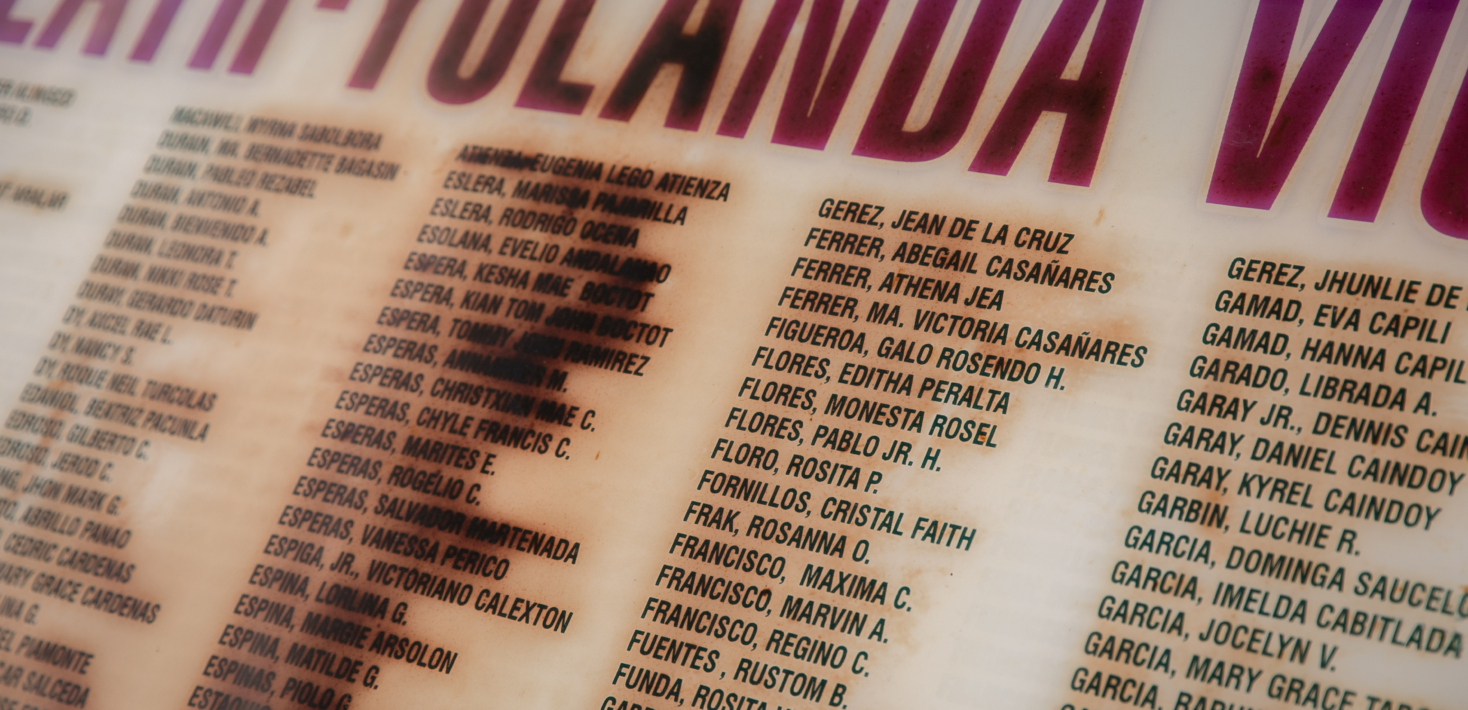SOLIDARITY STATEMENT ON THE OCCASION OF THE 10TH ANNIVERSARY COMMEMORATION OF SUPER TYPHOON YOLANDA
Millions homeless and displaced, 1005 still missing, 6300 human lives lost. Yolanda is still one of the deadliest super typhoon on record to devastate the Philippines.
Our country is at the top of the world’s overall most naturally hazardous places to be in this climate crisis. The intensity of storms that we deal with every year has massively increased in recent years with increasing sea temperatures brought about by global heating causing typhoons to become less frequent but much more powerful. As the ice caps at the north and south poles continue to melt at an alarming rate, the rising sea levels post greater threats to 70% of coastal communities in Southeast Asia. 150 million people currently living is these areas are set to be fully submerged by 2050.
But is the Philippines taking this threat seriously enough?
As an archipelago, with much of our land at low level elevation, the Philippines is already in the middle a perfect storm. And it will only get worse. The devastation that climate change is causing and will continue to cause is already a code red for humanity. Taking our planet for granted until we see the human cost of its degradation – driving hunger, displacement, unemployment, illnesses, and deaths, brings dramatic impact on peoples’ lives. Only with devastating clarity, would we realize how integral a healthy environment is to the enjoyment of all our other rights.
Large-scale action is required now, while there is still time, but this urgency must not be an excuse to violate human rights. Environment and human rights are intimately linked because of the effect climate change has on our own general well-being. But its effects are more pronounced for certain communities and groups, as well as those who are generally already disadvantaged and subject to many forms of social and economic discrimination. The failure of governments to act on the climate crisis in the face of overwhelming scientific evidence may well be the biggest inter-generational human rights violation in history.
The climate emergency can only be addressed by achieving genuine climate justice. Amnesty International Philippines is calling on the government to refocus its approach on the root causes of the climate crisis and how climate change builds on and magnifies inequalities among many Filipinos. Addressing the climate emergency also means responding to social injustices starting from centering government efforts on climate action which highlights community perspectives, knowledge and demands coming from groups most affected by it – gender, class, ethnicity, disability and intergenerational justice discourses are integral towards truly achieving climate justice.
On the 10th anniversary commemorating victims and survivors of Super Typhoon Yolanda, Amnesty International Philippines continues to work in solidarity with Greenpeace and various organizations to mount pressure against governments and corporations obstructing genuine justice and true progress. We will continue to support young people, indigenous peoples, trade unions, and affected communities for a rapid and just transition to human-centered actions to address the climate emergency because if we fail our environment, we fail to protect our human rights.
And there are no human rights on a dead planet!


